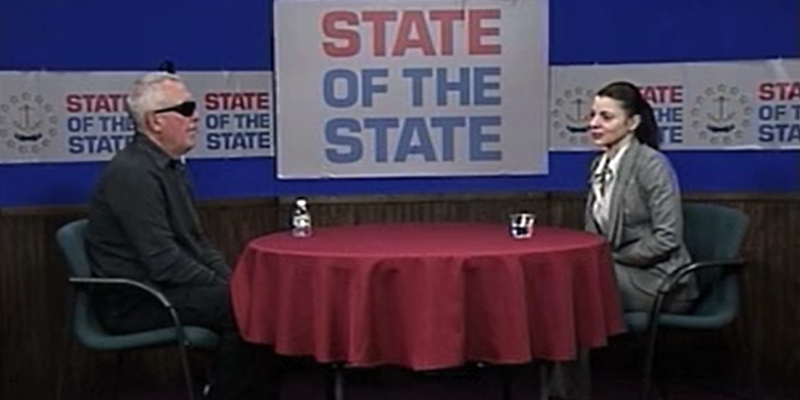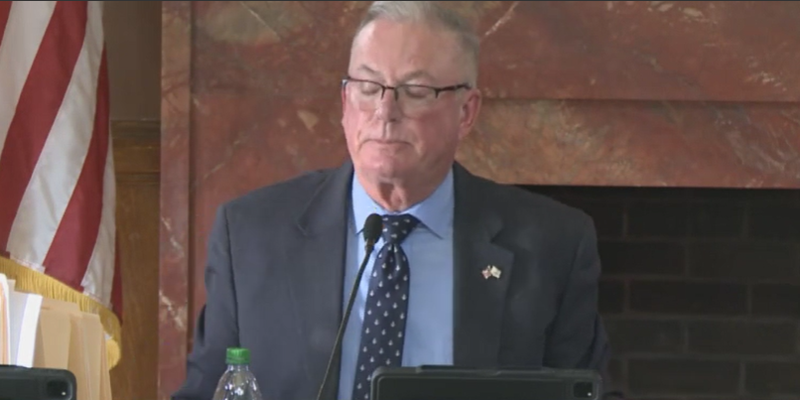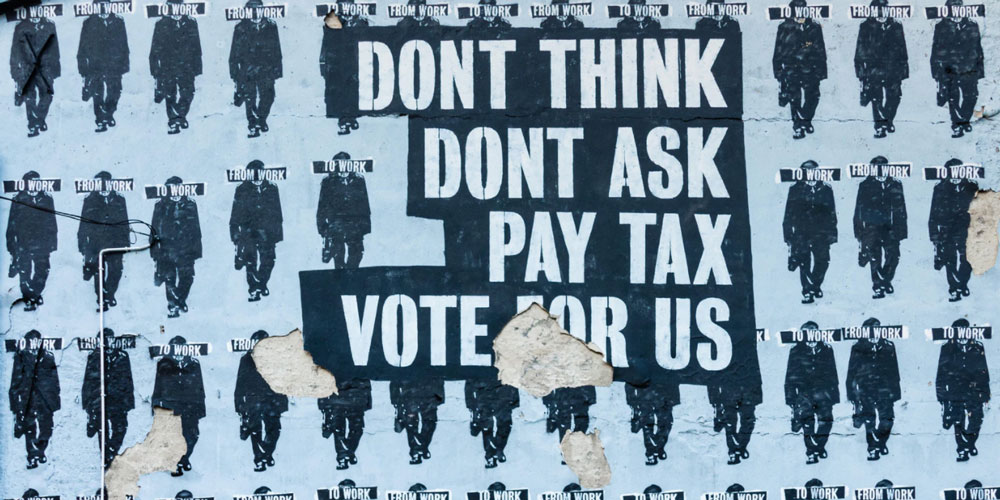Culture and history are funny things. Over the centuries, our civilization learns things about human life and codes them in cultural norms that everybody can know without having to be able to explain. They’re just how we do things — lessons learned over centuries, sometimes through painful experience.
No doubt, our ancestors coded the wrong principles into the culture from time to time, but often things appear wrong to us because the circumstances that prompted the rules have changed, and we’re not great at remembering how different things were. Yes, sexism existed 150 years ago when the workplace was thought unsuitable for women, but even putting aside birth control, we did not yet have cars, washing machines, vacuum cleaners, and countless other conveniences we take for granted that transformed homemaking into something that can be done on the side. In the workplace, we’re talking the difference between nail guns and hammers, transforming the nature of work. In a sense, the sexism coded culture for simple facts of reality. It’s messy business.
These are the sorts of things we should consider when, in the name of “Gender Equality on Beaches,” Nantucket goes fully topless. Importantly, note how action in the name of “equality” leaves no room for compromise. The activists, led by “love and pleasure educator” Dorothy Stover, phrased things in terms of rights, so those who might still like a beach where the already-blurred line of modesty is maintained at a 2010s level have nowhere to go on the island.
That was deliberate; an amendment to leave two beaches, including Children’s Beach, as safe havens for the modest was proposed and withdrawn, perhaps because our confused gender equality language (requiring the phrase “all persons”) made it difficult to articulate a rule that was sex-specific.
It is all well and good (and easily done) for advocates to insist that the answer to the discomfort and riskiness of public nudity is for parents to “teach their children respect for the human body,” but that attitude may prove callous. If many women avail themselves of the liberty, families may go elsewhere, and behavior may degrade. If few women do, their discomfort may set the “love and pleasure advocates” in search of new rules to impose on their oppressors.
Like traditional norms or not, there’s a reason they became the norm, and it isn’t simply that our ancestors were less sophisticated than we are. We may discover that those reasons still exist, even as we make it impossible in thought and language to correct our mistakes as we erase them.
Featured image by Rusty Watson on Unsplash.
[Open full post]As a conservative writer in Rhode Island, I find it difficult to know where to begin a reaction to the apparent, likely, or maybe only as-yet possible decision of the United States Supreme Court to reverse Roe v. Wade this session.
The place to start, I suppose, is with the biggest and most-obvious point. Unless our country is indefinitely to continue its slide into the ravenous maw of pure evil, Roe v. Wade’s reversal is at some point inevitable. Like slavery, a policy permitting the brutal slaughter of unborn babies — as in, literally tearing them into pieces placed in a metal dish to be sorted and perhaps sold — for any or no reason up to the last moment during which their bodies are touching the skin of their mothers during birth is simply too barbaric for a society that values human life to permit. And, in case it needs to be said, we should be a society that values human life. Correction of this evil can and should be done on ways that accord with our pluralistic and democratic heritage, but Roe v. Wade subverts ideological pluralism and democracy.
That raises the next-most-obvious travesty of Roe v. Wade, which is insisting that a handful of judges should be permitted to make this decision for the entire nation. I believe the horror of abortion deserves universal opprobrium, but other horrors await a nation that hands a political wildcard to a small group of judges simply because the national elite wants a policy that the people aren’t ready to accept through the usual rules of our governing game.
Subsidiary to that point is the problem that this wildcard has been yielded by means of incoherent, excuse-making reasoning. Even now, social media is awash in commentary with which it is impossible to engage because it is entirely unmoored. If the court returns decisions about abortion to the states, some are saying, that represents the judges’ imposing a rule on the entire nation. That is the opposite of reality! The more fine-grained analysis has it that Justice Samuel Alito’s reasoning puts a target on other historical rulings of the court, but that is explicitly not the case, and Alito explains why.
Last comes the deceitfulness of progressives, which was laid absolutely bare last night as this news leaked out. No limit appears to apply to the power that they would place in a few hands, centrally controlling vast swaths of humanity. Yet, despite their fondness for such terms as “democracy” and “the will of the people,” when that centralized decision-making machine takes a turn with which they disagree, they present it as simply illegitimate. If five progressive justices on the Supreme Court insist that there cannot be any small area of our massive country in which people can be governed according to beliefs with which those five disagree, then progressives proclaim them guardians of rights. If five other justices insist that we have a right under our Constitution to make such decisions more-locally, progressive decry the tyranny of permitting civic choice.
Featured image by Aditya Romanca on Unsplash.
[Open full post]On WNRI 1380 AM/95.1 FM, John DePetro and Justin Katz discuss:
- McKee plummets in the polls
- And he hides from debate
- And Kalus is on the air
- But voter legislation may destroy trust
- The progressives start to implode on their radicalism
- A congressional candidate has a strange interaction with the police
Featured image screen-captured from Coalition Radio video.
[Open full post]It is remarkable that Paul Edward Parker’s Providence Journal article about the “record-shattering baby shortage” in the Ocean State goes on as long as it does without making the key, irreducible point.
… The number being born in the Ocean State has ebbed to its lowest point in more than a century.
The phenomenon has been so pronounced that, for the first time since the state began keeping records in the 1850s, the yearly number of deaths eclipsed the number of births, creating a condition that demographers call “natural decrease.”
The problem, according to Parker, is that businesses need people to sell stuff to and to hire, not to mention the increased burden of an aging population and lost tax revenue. Parker’s most definitely not alone in this, but such analyses fall into the progressive trap of thinking of people as dehumanized pieces on the board and business as a static class.
Perhaps because it is so obvious that analysts don’t even think to notice it, the point missed is that people are the economy. It’s not just that they’re consumers who need services, which is a typical New England progressive way to look at the economy. They’re also producers and innovators and volunteers. The economy exists by their desire to turn their time and work into capital.
Parker puts forward the standard excuse-making line that Rhode Island mainly follows national trends, as if national trends always have to rule in RI, but the reality is that the sorts of people who would have children have no reason to be in our state. We cut off job opportunities, and our education system is terrible, especially for the cost. To the extent that our big spending on education does children any good, they’re apt to take our investment and move elsewhere for better opportunities.
Like a wild garden that grows where it can flourish, if our population isn’t growing, it’s because our social, economic, and cultural soil isn’t healthy. Some of that’s national, to be sure, but not all of it, or even most of it. The people who run our state (gov, media) are killing it. No wonder they want to miss that.
Featured image by Annie Spratt on Unsplash.
[Open full post]Living Successfully with Visual Impairment (3/28/22) from John Carlevale on Vimeo.
Michael Prusko talks with Darlene D’Arezzo about his experience of visual impairment. Prusko began to experience vision problems at age 45. Over time, he was seen by four different eye doctors and was eventually diagnosed with retinitis pigmentosa. He takes us step by step through this diagnostic process. His condition progressively worsened, and eventually he retired from his job. A variety of life changes were made in order to begin to manage his loss of sight more adequately. He acknowledges the support from his wife, children, and various helping professionals. Prusko has learned to use various prosthetic devices and a few very helpful technology tools. He cites a couple of organizations that were helpful to his learning to live successfully with his vision loss.
[Open full post]John Loughlin talks with Dr. Timothy Shafman and Phil Nigro, inventor of the Stud Grabber.
Featured image by Manu Schwendener on Unsplash.
[Open full post]Without insinuating an answer, I find myself wondering how it was that progressive Democrat state senator Dawn Euer, apparently alone among all people who track and inform the public about such things was the one who knew of three voter fraud arrests. Think of that. If she hadn’t mentioned the situation to score political points, many well-informed Rhode Islanders would still be walking around saying there was no proof of any fraud.
Maybe some small-scale local reporter caught wind of it. Maybe Euer has a regular topic search that lets her know when communities near her are mentioned online. But in a state where minor political stories are often considered newsworthy, this seems like one that others could have caught.
More important, however, is the rhetorical use to which Euer put her information:
“It is so dangerous to come up with false accusations, that are not grounded in reality. So I do want to give some facts,” she explained. “There were three people who were registered and voted in multiple states. Two people who voted in Rhode Island and Florida, and one person who voted in Rhode Island and Illinois. Guess what? We caught them.”
It’s a bit presumptuous of Euer to claim that “we caught them.” Notably, Katherine Gregg doesn’t tell us, at the first link above, who the “national watchdog group” was that “alerted election officials in other states who, in turn alerted Rhode Island election officials” of two of the three cases, but it wasn’t “we,” the Rhode Island government. The state got a couple lucky tips, meaning we have no basis to claim that these three cases are unusual, rather than broadly representative.
This point gains especial poignancy in contrast with a related topic: campaign finance and disclosure. In that case, folks like Euer are not nearly so cavalier. When we hear about a case of corruption — and they are still rare, given the number of public officials — nobody proclaims it as evidence that we catch all such cases. Rather, activists impose layer upon layer of restrictive regulations upon those who wish to run for office.
I won’t hazard a guess at the number, but we can be sure that a significant portion of the public shies away from public engagement so as to avoid all the invasive reports and disclosures, along with processes that seem designed to trip a busy person up. Advocates call for such things, presumably, because access to the power of public office creates an attractive target for people trying to gain control and buy favors.
Why, by the same token, do we assume the corrupt won’t attempt to influence government through voter fraud? Moreover, why do some assume that making it ever easier to cheat won’t make cheating ever more common?
Featured image by Obi Onyeador on Unsplash.
[Open full post]There isn’t anything redeeming about Democrat Representative from Cranston and Warwick Joe McNamara’s highly inappropriate abuse of his position as Chairman of the House Education Committee to posture politically over legislation from Republican Representative Patricia Morgan (West Warwick, Coventry, Warwick), captured in this video clip:
On first pass, the unprecedented attempt to give Morgan “the opportunity” to withdraw a bill during the hearing is exposed as pure showboating. More importantly, McNamara is either lying or wholly ignorant about how the laws the General Assembly passes actually function, which makes him a dangerous person to tolerate in public office regardless of his political stances.
The details of the bill are incidental to this point, but for the sake of clarity, we should understand his claim. Morgan’s legislation is an attempt to head off some of the worst excesses of Democrats’ use of our schools to politicize, racialize, and sexualize children. McNamara’s claim is that the bill itself violates a state statute against bullying. That’s not how the law works, and after his many years in the General Assembly, one would have expected McNamara to know that.
Each session, the people’s representatives enact laws that (ostensibly) reflect the will of the people. A law can be invalidated if it violates the Constitution, but one law cannot “violate” another; they are on the same plane. If, in a specific circumstance of an actual individual who is subject to the state’s laws, two statutes appear to be in conflict, the judiciary will interpret the laws, first, to determine whether they can somehow both operate in concert and, if that is not possible, to determine which controls in that particular circumstance.
If McNamara were sincere in his strictly legal concern, he would raise the contradiction he sees and ask Morgan if there is some way to resolve the conflict within the bill. That is what the committee process is supposed to do — gather information and revise the language in substitute bills that can then go to the entire legislative chamber for consideration. His asking Morgan to withdraw the bill entirely, proves that McNamara was deceitfully attempting to dress his political opinion in presumably objective legal dressing.
The more divided our society becomes, the more clearly we can see the importance of process and the rule of law. Ultimately, the only thing holding us together is the principle that we can affect the rules by which we live through a predictable process that does not privilege one ideology over another. That principle is already fraying, and to score a few political points, McNamara gave it a whack with his rhetorical ax.
Rhode Island is fortunate that McNamara’s rhetoric is as dull as it is, but nonetheless he should step down for his assault on our most fundamental shared civic heritage.
[Open full post]On WNRI 1380 AM/95.1 FM, John DePetro and Justin Katz discuss:
- Fallout from Sam Bell’s new infamy
- Segal brings the progressive establishment fully to RI politics
- Kalus’s introduction to the RI bureaucracy
- Polisena sours on McKee
Original image by Justin Katz.
[Open full post]Socialist Rhode Island state senator Sam Bell (Democrat, Providence) has gotten a good deal of richly deserved negative pushback over truly terrible legislation he submitted in the state General Assembly (which is not to say that some of the correspondence he’s received hasn’t gone too far). As the cosigners on Bell’s legislation back away from the heat, we shouldn’t lose track of just how close our government is to using the income tax for explicitly punitive reasons.
It ought to terrify Americans across the political spectrum that elected officials didn’t laugh Bell out of the State House over such an assault not only on our bodily integrity, but also on the idea that the income tax shouldn’t be a means of manipulating us financially.
The following paragraphs from a recent ProPublica article by Paul Kiel, titled ” If You’re Getting a W-2, You’re a Sucker,” provides two important threads to tease out along these lines:
This basic divide [between those taxed as workers and those taxed as business owners] is also apparent in how tax laws are enforced. To the IRS, the average worker is an open book, since all their income is disclosed on those W-2s and 1099s. Should they enter an errant number on their tax return, a computer at the agency can easily catch it.
But that’s generally not true for private businesses. Such companies are often tangles of interrelated partnerships that, like densely grown forest, can be hard to penetrate. Auditing businesses like these “certainly is a test of endurance,” said Spretnak, the former IRS agent.
The first, and less significant, thread has to do with the relative advantage of working for one’s self. Kiel’s headline suggests W-2 employees are on a foolish path, and yet union-backed progressive legislation in Rhode Island is attempting to make it risky for businesses to treat workers more as owners by labeling such practices as “wage theft.” Without spending paragraphs attempting to reconcile ProPublica with the unions, we can observe that the activists are oversimplifying employment decisions in a way that may very well harm Rhode Islanders and limit our flexibility as the economy evolves. The unions want Rhode Islanders to be suckers, so that we’ll have no choice but to be their suckers.
The more-important thread, however, emanates from the image of tax agents poring over Americans’ finances, attempting to discover their mysteries and have a complete, open-book picture of everybody’s financial existence. Is that really what the income tax should be about?
I’d say it’s a rather dramatic downside to the very idea of an income tax. That one change in the law a little over a century ago completely shifted our relationship with the government, and we should move quickly to learn the lesson and fix the vulnerability.
Featured image by Pawel Czerwinski on Unsplash.
[Open full post]









